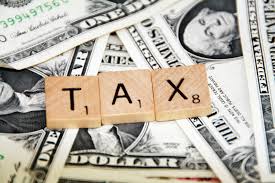January 21, 2024 (MLN): The government has agreed on contingency revenue measures with the International Monetary Fund (IMF), which includes imposing a federal excise duty (FED) of Rs5 per kilogram on sugar to generate additional revenue of Rs8 billion per month during 2023-24.
The first review report under the Standby Arrangement published by the fund revealed that the government has agreed upon several contingency revenue measures with the IMF in case of a revenue shortfall.
The report said, "should cumulative monthly revenue significantly underperform, the government, in consultation with IMF staff, would implement selected measures."
If the monthly cumulative FBR revenue falls short of the projected target by 1.5% in Q2, 0.5% in Q3 or 0.1% in Q4, the government will evaluate the adoption of one or more of these contingency measures.
Apart from the FED of Rs5 per kilogram on sugar, it agreed to raise the GST rate for textiles and leathers tier-1 from its reduced rate of 15% to the standard rate of 18%, to generate an additional revenue of Rs1bn per month.
Morover, it has agreed to increase advance income tax on import of machinery by 1 percentage point to generate an additional revenue of 2bn per month.
Contingency revenue measures also includes increasing advance income tax on import of raw materials by industrial undertakings by 0.5 percentage points, with an expected collection of Rs2bn per month.
The report further revealed that the government, if deemed necessary, will increase advance income tax on import of raw materials by commercial importers by 1 percentage point, with an expected collection of Rs1bn per month.
Additionally, it will increase withholding tax on supplies by 1 percentage, expecting an additional collection of Rs1bn per month.
In case of a significant shortfall in monthly revenue, the government, in consultation with IMF staff, will increase withholding tax on services by 1 percentage point to generate an additional revenue of PR1.5bn per month.
To enhance revenue further, a 1 percentage point increase in withholding tax on contracts is planned, targeting an additional monthly collection of Rs1.5bn.
The IMF report highlighted that against a budgeted projection of Rs1.113 trillion in SBP dividend transfers, the realized amount fell short by Rs141bn due to variations in interest rates, exchange rates and volume of liquidity operations.
Although the robust revenue performance in Q1 may mitigate some of this shortfall, achieving the primary deficit target hinges on the effective execution of all FY24 budget measures, as well as measures to expand the tax base, including issuing tax notification to more than 900,000 non-filers who have already been identified by the FBR.
While internal taxes have performed better than anticipated, the government anticipates they will play a more significant role in its tax collection as the year progresses.
The government has committed to monitor the performance of the Federal Excise Duty (FED), income tax, including the advance payments and the withholding taxes, and the expansion in the taxpayer base, providing the IMF team with timely monthly data on agreed performance indicators early in the following month.
Should revenue fall short, the government will adopt appropriate corrective measures to ensure the targets are met.
Moreover, if the monthly cumulative FBR revenue falls short of the projected target by 1.5% in Q2, 0.5% in Q3 or 0.1% in Q4, the government will evaluate the adoption of one or more of the contingency measures mentioned above.
To enhance revenue administration, including the efficiency of the track and trace system, we will strengthen our anti-smuggling efforts, the government will intensify the anti-smuggling campaigns and enhance checkpoint operations in the northern regions.
Furthermore, the outcome of the tax diagnosis slated for FY24Q2 will play a crucial role in identifying the necessary additional reforms to ensure the achievement of our FY24 budget target, as well as establish significant increases in tax-to-GDP over the next year through increased taxation of undertaxed sectors (including retail, property, construction, and development, digital markets) and supportive administration efforts.
Measures to expand tax payer base
In January 2024, the government has planned to launch a scheme in for door-to-door campaign in four provincial capitals and Islamabad, to register non-filing retailers and streamline their tax filing.
By cross-referencing tax filings with electricity meter data, it will detect evasion and conduct audits when required.
The government will implement safeguards in the form of strict supervision through random audits of assessments filed under the scheme to verify correctness of valuations and payments.
The government will launch this scheme with least discretion for the field offices to alter valuations and assessments to protect the potential revenue raised from these actions.
To avoid double taxation, monthly advance tax payments under thescheme will offset final income tax liabilities at year-end at the time of return filing, but no refunds of such advance payments of taxes will be issued.
Moreover, the government has committed to provide the IMF team with timely monthly data on agreed performance indicators.
Copyright Mettis Link News
Posted on: 2024-01-21T17:27:28+05:00







